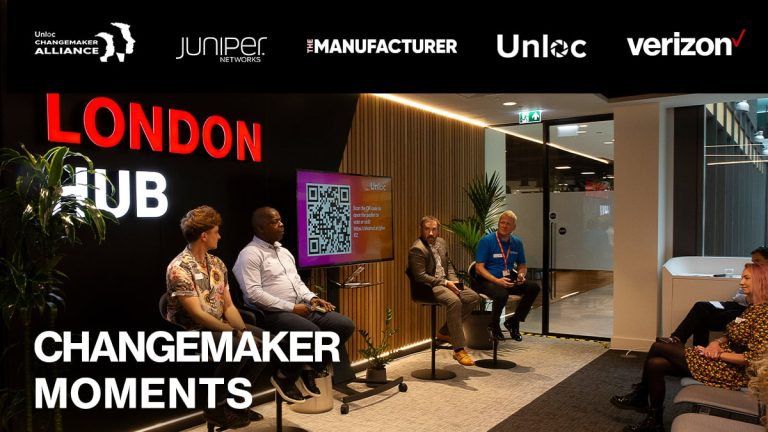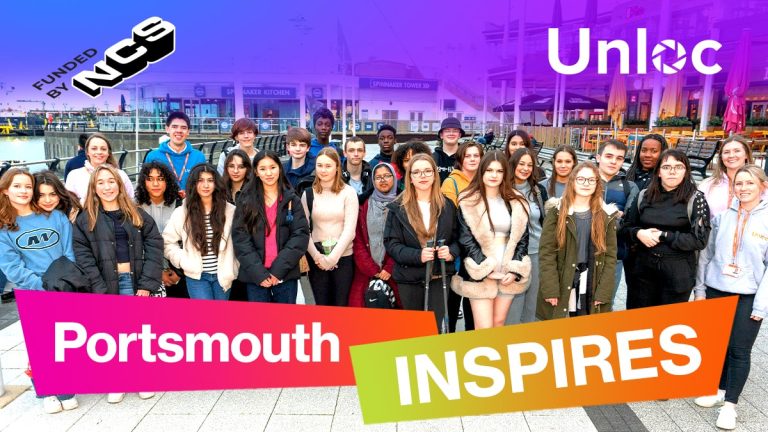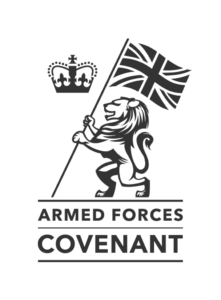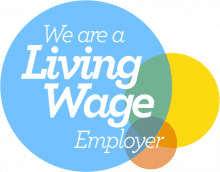This week, from the 2nd to the 8th of April it’s World Autism Acceptance Week, seven days dedicated to raising awareness of the challenges and barriers that people on the autistic spectrum face, of educating others, sharing experiences, celebrating success, and fundraising to help provide better support for those dealing with autism.
Autistic people can often face discrimination and meet barriers across all sectors of society, from dealing with health and social care systems and support, to education, employment, public services, accessibility, and everywhere in-between. It’s crucial that autistic people, their families and their support network, can access tailored information, guidance and support to overcome those barriers, along with opportunities to explore their interests, develop skills and build friendships for fulfilled lives.
Statistics from the National Autistic Society reveal that:
.
There are shockingly over 150,000 people on the waiting list for an autism assessment
A mere 26% of autistic young people feel happy in school
Only 29% of autistic people are in any form of employment
70% of autistic people experience mental health problems
.
One of our very own Unloc Facilitators Jessi was diagnosed as being on the autistic spectrum, and we were keen to find out more about her personal experience. Jessi’s been kind enough to let us interview her and share her diagnosis and experience with you in order to celebrate World Autism Acceptance Week, and to raise awarness of what life is like dealing with neurodiversity.
.
Jessi thanks so much for sharing your story with us, so that our followers can get an idea of who you are and what you do – tell us how long you’ve been working with us at Unloc, and s a bit about your role!
Certainly! Hi everyone, I’m Jessi and I’ve been with Unloc since November 2020. I originally joined the organisation as Maternity Cover for another Facilitator, and when she came back to work, I was asked to stay on as a permanent Programme Facilitator! So from July 2022, I’ve been a permanant employee focusing on Leadership Skills and Student Voice.
The biggest programmes in my portfolio are facilitating and running three Student Forums: Cambridgeshire Student Forum (CSF), Council of Portsmouth Students (CoPS) and Primary Council of Portsmouth Students (PCoPS), all of which I adore for different reasons and have had the pleasure of building and growing over the last few years!
.
What’s your favourite part of being a Facilitator and working with young people?
I thrive on giving young people opportunities that I didn’t have as a young person myself – CoPS (The Council of Portsmouth Students) existed when I was at Secondary School (and would’ve been the perfect age and amount of keen-ness for it) but I grew up just outside of Portsmouth, and Student Voice wasn’t ‘big’ in my own school whatsoever, we didn’t have School Council or Reps at all! So to give these opportunities to young people in their schools now is amazing.
Another highlight is seeing young people meet new people and make friends, especially across institutions and areas – and this is often their favourite thing about sessions and programmes too!
As an ex-Drama teacher, working with young people as a Facilitator, supporting them as they learn and discover themselves, suits my style of delivery anyway – and I’m still able to draw upon all of those Drama and performance skills!
.
.

.
When were you diagnosed as being on the autistic spectrum, and how did that diagnosis come about?
I’m what is called a ‘late-diagnosis’, which is common in females and those that are ‘high-functioning’ / ’low support’. I was formally diagnosed with Autism Spectrum Disorder (ASD) in July 2023 when I was 33, after beginning the process in July 2021, where I contacted my GP, was referred to a specialist, put on a (lengthy) waiting list, transferred to a private clinic, assessed in March 2023 and confirmed a few months later!
However, I first began to self-diagnose back January 2017 when I started my Masters degree – there was something about returning to the ‘other side’ of education as a student, having worked as a teacher for a number of years and had numerous students with neurodiversities, including autism, that put me in a vulnerable position enough for me to realise that perhaps I might be neurodivergent too. Being able to communicate this to my lecturers and facilitators, who hadn’t (knowingly) worked with an autistic individual before, somewhat helped everyone in accommodating as best as possible during my studies.
Recently, I was in a webinar about neurodiversity in women, with a lot of attendees being of similar age to me and having only recently been diagnosed as being on the spectrum – one of them said that they ‘mourned their childhood’ and wished they had got diagnosed earlier in life. No doubt, this is something echoed by a lot of people, but for me, I like to think:
“Don’t mourn the girl I used to be who didn’t know she was autistic; celebrate the woman who was strong enough to get diagnosed and can lead her life knowing a little bit more of who she really is.”
.
Had you always realised something was different? How did that present itself?
To put it bluntly – yes. I always felt a bit odd and different, but was fortunate that a lot of times this was celebrated; a high reading age in Year 3 & 4, being in the ‘gifted and talented’ programme in Year 5 & 6, performing and ‘playing a character’ led to many a dance, drama and musical performances throughout my life. Even my clumsiness and falling over a lot was a running joke with the school nurse and my teachers. But it always came back to me feeling uncertain about my ‘place’ in relation to others, including within my own family – but I’d convinced myself that everyone felt like this at times and I just needed to ‘deal with it’.
But it got to the point quite a few times in my life where I wasn’t ‘dealing with it’ very well and it really affected my mental health with spells of depression and anxiety. These spells do and can still occur, but now I know they are comorbid (the existence of more than one condition at the same time) with my ASD, and so to consider things from that angle, as well as continually finding ways to share and celebrate my differences, really helps me to accept who I am.
.
.

.
How does your autism present in your life Jessi, and what issues or challenges do you face because of it?
How long is a piece of string…?! The list is endless, honestly, and I think to share a few of these would be surprising to those that know me – whether that’s colleagues, young people I work with, friends and even family members, because I do something called ‘masking’ (a strategy to appear non-autistic in order to to blend in and be more accepted in society). Masking occurs consciously, for example, when I’m facilitating: I always say about how outwardly I need to express confidence and assurance, regardless of how I am feeling inside, and making eye contact with participants to make connections and ensure ‘engagement’ (although I’m the first one to say that someone doesn’t need to physically be looking at someone to be listening and engaging, and I actually have to ‘force’ eye contact because it doesn’t come naturally to me).
Alternatively, I sometimes mask unconsciously too (in fact everyone masks unconsciously to some extent because this behaviour stems from early social learning) and so when that mask ‘slips’, people tend to think something is wrong or that I’m not my ‘bright, bubbly, usual self’. And so by keeping the mask on, especially at work or in social situations, when I’m at home or on my own and don’t need to mask, I often ‘slump’ and am drained, needing a lot of time to recharge and do a whole lot of nothing (which is incredibly frustrating when I want to be doing things, like reading or cleaning).
I’m still working on finding a balance between my work and home life, and there’s never going to be an easy fix, but this is probably the biggest challenge I face because of my autism.
.
What coping mechanisms or workarounds have you developed to help you?
I have a few things that I’ve developed to help, and am still finding coping mechanisms for others, but the ones I find that work for me:
- Colleagues giving me as much advance warning/notice/heads up about things such as meetings going into my diary, sharing of information (no matter how small), events and AMOSing (additional member of staff for someone else’s event) – this gives me time to process, understand, accommodate as well as research, plan and prepare if needs be!
- Using my noise cancelling headphones in the office (and sometimes even at home when my partner is also working from home) and not feeling like I’m being rude.
- Using fidget toys (my favourite is the fidget cube at the moment!) to help me process and listen – although I want to get more confident using this in front of people I don’t know or don’t know as well; a pen is a good substitute in the meantime!
- Have flexibility of where I work – if I feel like I need to work from home because I’ve slept badly (I have insomnia and rarely get a full nights’ sleep) or have had a bad start to the start, I can switch my days and/or make in-person meetings online and people understand.
- Thoroughly organising my time – my work calendar is a piece of art and something I’m incredibly proud of, and it helps me to stay on task, remember to eat and be organised enough to stop panics and meltdowns!
- Writing everything down – I’m never without my trusty notebook and I’m currently on number 16 since I started at Unloc (and yes I do often refer back to them to prompt my memory)!
Coping mechanisms will be different for everyone, but if something that I do can help someone else out (autistic or not), I’ll always encourage others to ‘borrow’ and ‘steal’ them to make them work for themselves – because I’ve probably stolen all of these from someone else down the line!
.

.
Have you received much support from the NHS/your doctor? What support (if so) and how has that helped/or hindered you? Did you have to wait long for it?
The very first doctor I spoke to on the phone, who happened to be female, was very supportive and understanding when I asked to be referred and assessed – I know this is not always the case for some people (especially if their GP is an older, male doctor) and their first attempt can be ‘pushed back’ or ‘put off’ which can be disheartening – I would’ve done similarly had I worked up the courage to ‘finally’ talk to someone about it and then was dismissed.
I think the transfer of my referral from the NHS to a private company, Solutions 4 Diagnostics, was fantastic as had it been the original wait time that was predicted, I wouldn’t have likely been assessed until now (ie April 2024) – so I got seen to over a year early! In my assessment, a plan of six points was drawn, one being for my GP to refer me for psychological therapy and support – this has not come about yet and I’m not even sure my diagnosis was passed on to my GP, so I need to chase that! But I’m sure when I do, the support will be there which I am already grateful for!
.
How have you found working at Unloc with autism? Have we as a company been supportive and understanding? Be completely honest!
When I started at Unloc, the UK was in Lockdown number two, so my first day was at my dining room table – which was very odd and weird but actually probably a wonder for my autism; had I started in-person, I would’ve no doubt been overwhelmed by a new office environment with practical strangers, the ‘rules’ regarding breaks and lunches (which I still struggle with now), and it would’ve been (more) exhausting to be ‘on’ during my working hours, even between meetings and induction sessions.
Unloc has a ‘flexible approach to working life’, where we try to spend 50% of our time in the office (or facilitating) and 50% working from home – this is incredible for me, especially if I am having a ‘bad day’ and would struggle in the office and around other people, I can still efficiently work in the comfort of my own workspace at home (and probably be more focussed without the usual office distractions!).
I’ve had two line managers over the years of working at Unloc, and I can honestly say both have been fantastic, always going above and beyond to support me and my ways. As has the whole team in general – everyone is so lovely and accommodating to everyone else. Don’t get me wrong, it’s not always plain sailing but it’s definitely the best environment and team I’ve worked in and with, and for that I am eternally grateful.
.
What would your advice be to someone else who thinks they may be on the spectrum themselves? Do they need to worry? Can they lead a perfectly normal/happy life? Should they get help?
Firstly, if anyone feels like they may be on the spectrum, or any kind of neurodivergent, please do share these thoughts and feelings with your friends and/or family – speaking it out loud can help bring this into reality, rather than thinking it over in your head and keeping it to yourself. Conducting further exploration including personal research will help you to find you are not alone and there is wealth of information out there (sometimes overwhelming so, so try to be specific with your questions or search terms) – this can then help you if you choose to look to get a formal diagnosis.
However, a self-diagnosis is just as valid and some people choose to not formalise it – I decided I wanted to so as to open some doors in the future, for example if I choose to get medicine to assist with my anxiety and/or depression, this will now be treated with the knowledge of my autism diagnosis and so should be better suited. Reaching out to your GP, regardless of wanting a formal diagnosis or not, is ideal to speak to a professional, although remember they unlikely have much knowledge or specialism in autism, and so you may wish for them to refer you on to someone else.
Secondly, do not worry (I know, easier said than done). I’m sure at times I myself have felt worried, but this has often been overruled by relief – the realisation that this is not all made-up or in my head, but a real life condition that does affect me day to day, but I’m still here, leading a somewhat ‘normal’ life, and able to share my story.
The joy of autism, for me, is the lack of normality because everyday is exciting and different – yes it can be challenging and difficult, but we are so fortunate to live in a world that has knowledge and understanding of autism, and this is continuing to grow and get better, making it easier for people like me.
Jessi thank you so much for sharing your journey and experience with us, as you know there are so many people out there who are undiagnosed, and sharing success stories and testimonies like yours can be so helpful to other people, thank you for being such a great part of the Unloc team!
.
.
For more information about autism and how to get a diagnosis click here
.
To get details on how to get an autism assessment from the NHS click here









